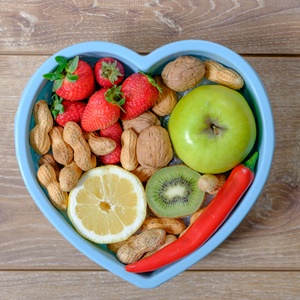
There are about 415 million people living with diabetes worldwide – and three million are South Africans. By 2030 that figure is likely to increase to more than 500 million globally. Fortunately there are ways to manage diabetes, and diet is one of them.
“Make sure your food tastes good, otherwise it becomes difficult to sustain,” says Leanne Katzenellenbogen, a Johannesburg-based dietitian. “Eating and food are such a big part of day-to-day life.”
She adds that an eating plan should not be boring; instead it should be about keeping as close to what you like as possible (obviously within the parameters of nutritional guidelines). See a dietitian who specialises in diabetes – they can provide plenty of ideas, suggestions or recipes to make food and eating a pleasurable experience, rather than one loaded with guilt.
“You shouldn’t need to turn your world upside down over your eating plan. Rather fit it into your life while considering the guidelines as well.”
Myth busting
“There are many myths out there as far as all diets are concerned,” says Katzenellenbogen. “With the technology we have, there is so much information available at our fingertips. But it’s not all good information and it can become confusing.”
One of the biggest mistakes a diabetic can make is thinking that you only need to avoid sugar. Katzenellenbogen says you also need to consider the effect fat has on blood sugar.
“What many diabetics don’t know is that many people do not respond well to fatty foods and in particular saturated or animal based fats – for example, fatty lamb dishes, ribs, leaving skin on chicken or fat on meat,” Katzenellenbogen explains. “Different people react to different foods, and certain people find that some fruits cause their blood sugar levels to spike. You need to find what works for you and your blood sugar.”
And don’t overindulge – if portions are too big, especially if they consist of starchy or fatty foods, blood sugar tends to get too high.
No one-size-fits-all
“There is no definite one-size-fits-all with the ‘diabetic diet’,” says Katzenellenbogen. “The obvious no-no’s are, for example, sugary and/or fatty foods like fatty, sugary cakes, biscuits, sweets, chocolates, cold drinks and fruit juice.”
Stabilising blood-glucose levels
A balanced diet includes foods from all food groups – protein, (ideally monounsaturated) fats and carbohydrates. Always opt for lean proteins and fats from the monounsaturated group, for example olives, avocado, olive oil, canola oil and peanut butter.
When it comes to carbohydrates, aim to eat low-glycaemic index foods (this does depend on medication and exercise, though). Portion control is important too because even though low-GI foods are absorbed more slowly, large portions can cause blood sugar spikes.
Include fruit (but only one at a time) and vegetables in your diet to make sure you are getting the correct vitamins and minerals. The “five-a-day rule” also applies to people with diabetes.
If you want to indulge your sweet tooth and have cake (carbohydrate) for dessert, you’ll have to leave the carbohydrate component out of your meal to allow for the cake.
In the mood for something sweet? Click here for the recipe to a delicious low-GI brownie from Leanne Katzenellenbogen's new cookbook Delicious Modern Healthy Recipes For Diabetes.
Read more:
Fructose produced in brain may affect diabetes and obesity




 Publications
Publications
 Partners
Partners











